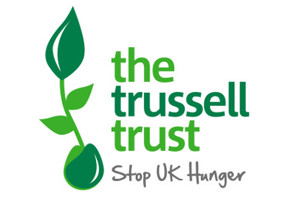Donations to foodbanks via crowdfunding websites have declined in May and June after peaking at the beginning of the lockdown, according to data from the University of Kent.
Professor Peter Taylor-Gooby and Dr Tomas Petricek from the University of Kent gathered information on donations to foodbanks via crowdfunding websites GoFundMe, Just Giving and Virgin Money Giving using data-scraping software.
They found that in February, before the beginning of the Covid-19 crisis, fundraising appeals for foodbanks raised about £8,000-£10,000 a week. From early March, the figure started increasing very quickly, going from £50,000 a week at the beginning of the month to £1m week after 23 March, when the national lockdown was imposed.
After that initial peak, donations to foodbanks via crowdfunding websites started to decrease. They amounted to about £600,000 a week in early May and fell to £125,000 a week in early June.
‘Level of support is falling’
The research is partial, because it does not look at other donation channels, such as direct donations via foodbanks’ websites, corporate support, or donation boxes in supermarkets, among others. The crowdfunding websites are scraped every two weeks, so some short-term appeals could also have slipped through the research net.
But it suggests that donors are showing signs of “compassion fatigue”, decreasing their levels of support at a time when need is likely to increase further, the authors of the research have said.
Peter Taylor-Gooby, professor of social policy at the University of Kent, said: “The findings indicate how the amount raised took off in step with the numbers of coronavirus cases and the numbers claiming out of work benefits.
“The results so far show great and unexpected public generosity. Many people gave money to help vulnerable fellow citizens. But the level of support is falling. As the numbers of cases declined from April onwards, so did the income from the appeals.
“Official statistics show that, although the pandemic is in retreat, the number of benefit claimants continues to rise. All commentators believe even more people will lose their jobs as furloughing is wound down and the recession bites home, with a possible further impact from Brexit. Demand for food parcels will rise further. We can expect more urgent appeals for funds.
“Pandemic is widely seen as a common threat. Will people be as generous when we move into recession and very high unemployment? The indications of compassion fatigue are disturbing.”
Food banks calling for government to increase support
Meanwhile, foodbanks have reported their “busiest month ever” in April 2020. The Trussell Trust, which supports a network of 1,200 foodbanks in the UK, saw a 89% increase in demand for emergency food parcels compared to the same month in 2019.
The Independent Food Aid Network (IFAN), a membership body representing 259 organisations operating 346 independent food banks, reported an even bigger increase in demand over the same period (+175%).
IFAN said that record demand has increased the reliance of foodbanks on public fundraising, which makes signs of decline in donations worrying, and is calling for the government to upscale its support to people in need.
Sabine Goodwin, coordinator of IFAN, said: "Covid-19 has fundamentally changed how independent food banks operate with an increased reliance on financial donations from the public as the need for charitable food aid grows.
“Signs of compassion fatigue are very worrying not because the public should be relied on to support food banks but rather because the government continues to largely ignore an unprecedented poverty crisis and is failing to meet its responsibilities to ensure that people have enough income to be able to afford to buy food."












